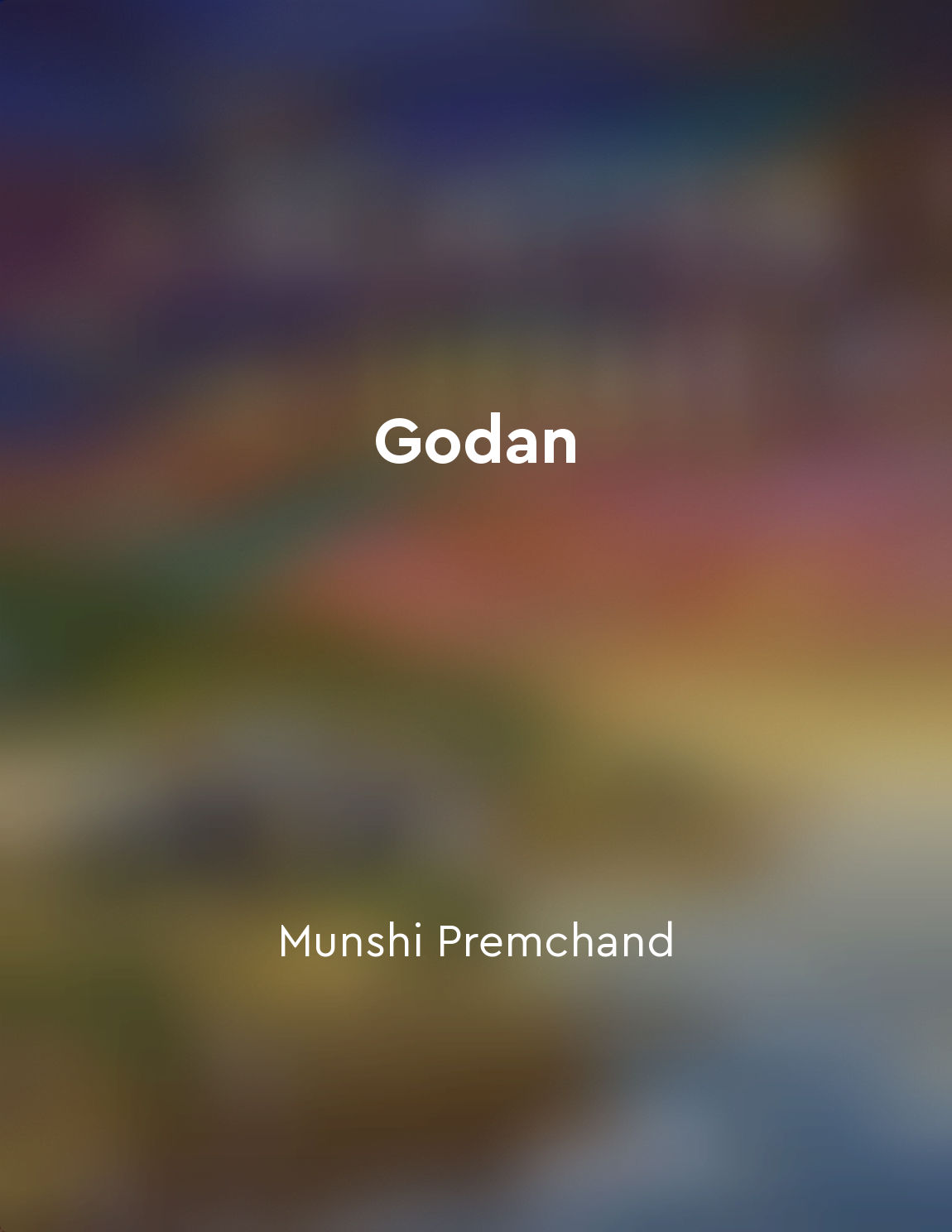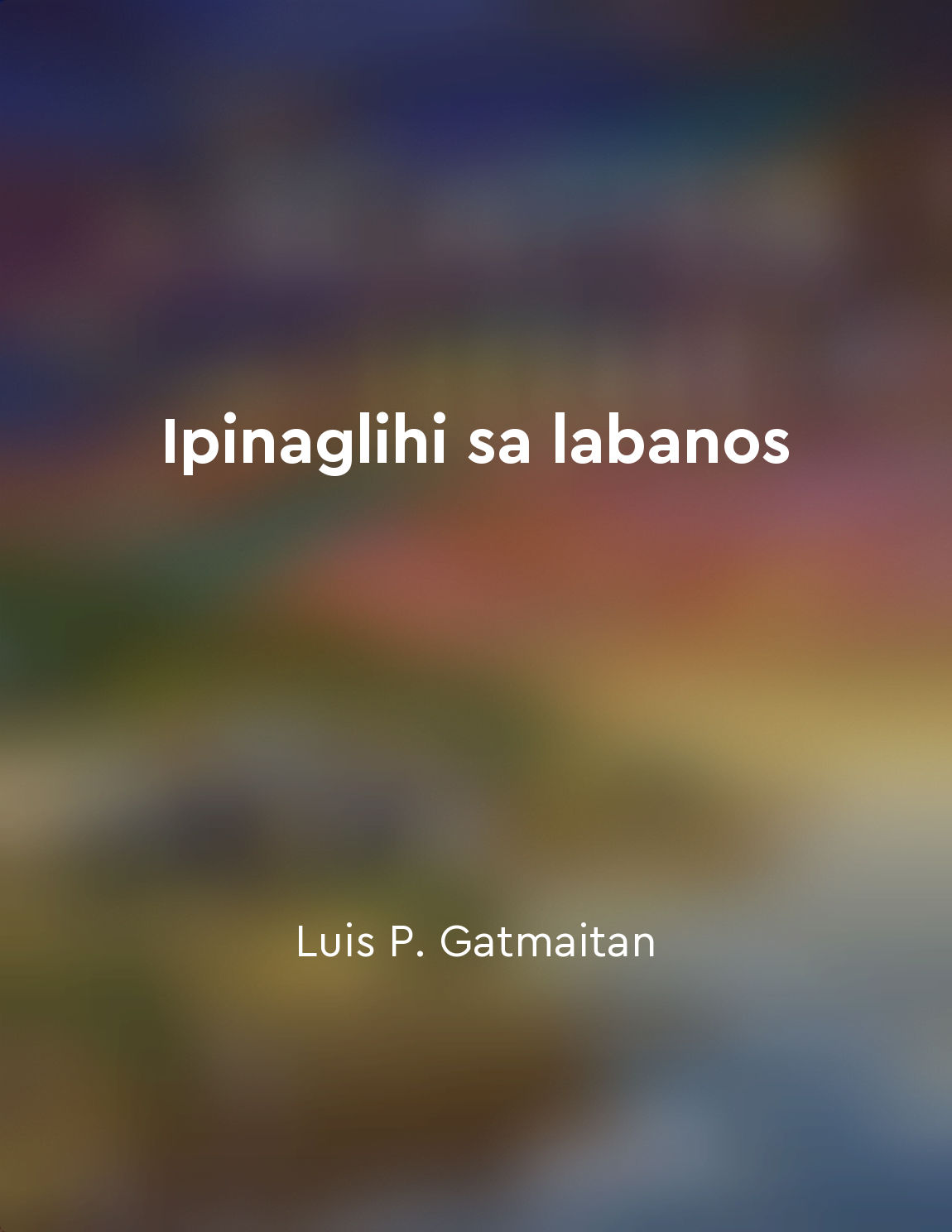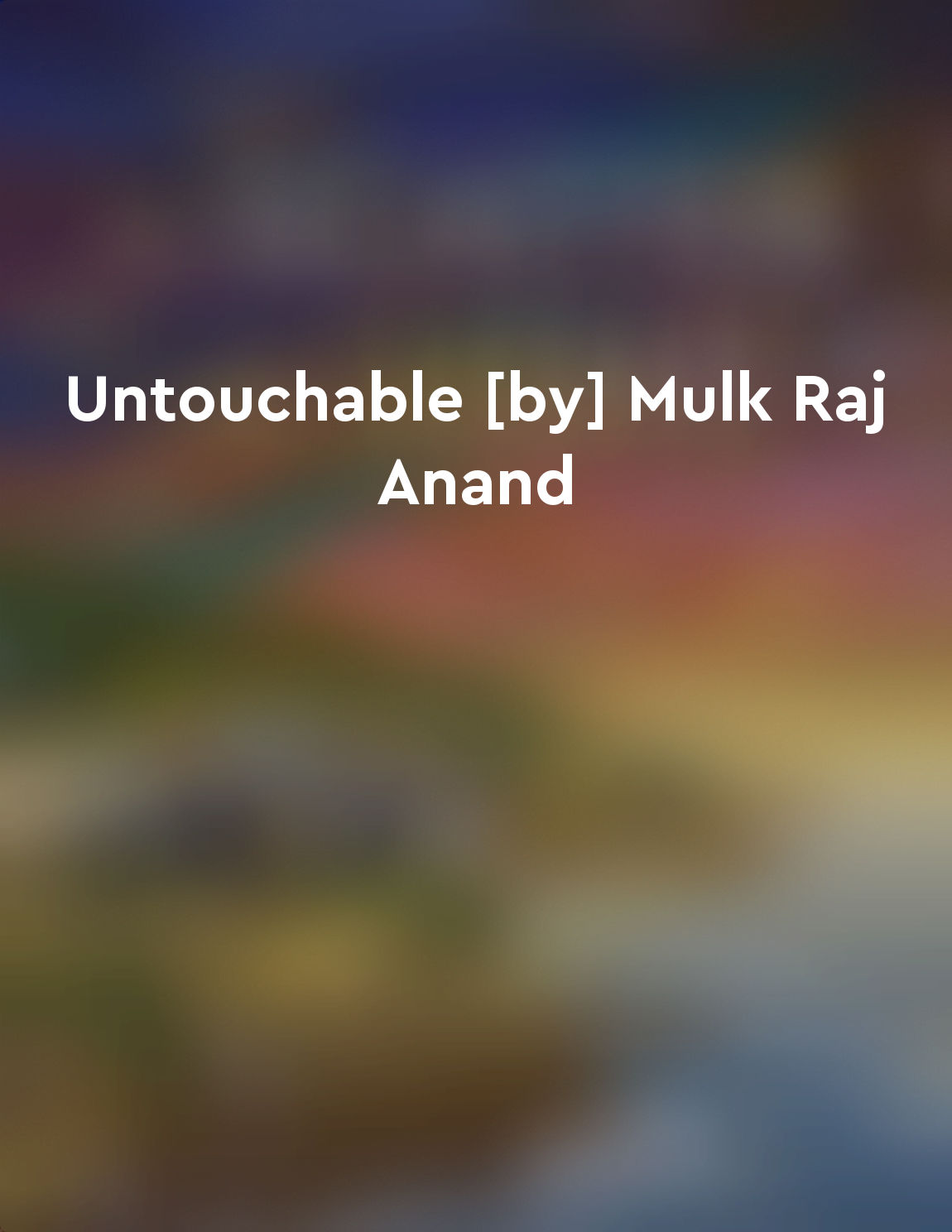Bakha encounters various characters who treat him differently because of his caste from "summary" of Untouchable [by] Mulk Raj Anand by
Bakha, the protagonist of the novel "Untouchable," faces discrimination and mistreatment from people of higher castes due to his low social status as an untouchable. Throughout the story, Bakha encounters various characters who exhibit different attitudes towards him based on his caste. These encounters highlight the deep-rooted prejudices and inequalities present in Indian society during the time the novel is set. From the very beginning of the book, Bakha's interactions with individuals from higher castes reveal the oppressive nature of the caste system. He is often subjected to derogatory remarks and degrading treatment simply because of his birth into an untouchable family. The disdain and contempt shown towards Bakha by those of higher castes serve as a constant reminder of his inferior status in society. Despite his efforts to break free from the constraints of his caste, Bakha finds himself constantly reminded of his place at the bottom of the social hierarchy. Whether it is through verbal abuse, physical violence, or exclusion from certain spaces, Bakha is made to feel like an outcast in his own community. The discrimination he faces from others based on his caste identity takes a toll on his self-worth and sense of belonging. The juxtaposition of Bakha's experiences with those of individuals from higher castes serves to emphasize the stark disparities in treatment and opportunities available to different social groups. While some characters may show him kindness and empathy, the overarching theme of discrimination based on caste remains prevalent throughout the narrative. Bakha's struggle to navigate a society that constantly reminds him of his "untouchable" status sheds light on the pervasive nature of caste-based discrimination in India. Through Bakha's interactions with various characters, the novel effectively conveys the harsh realities faced by individuals marginalized by the caste system. The author skillfully portrays the complexities of social hierarchies and the lasting impact they have on the lives of those deemed "untouchable." By highlighting the ways in which Bakha is treated differently because of his caste, the narrative underscores the need for societal change and a reevaluation of deeply ingrained prejudices.Similar Posts
Woman's identity is constructed by society
Society plays a vital role in shaping the identity of women. From the moment she is born, a woman is surrounded by a world that...

Inclusivity is essential for societal progress
The notion that inclusivity is essential for societal progress is a fundamental principle that underpins the fabric of our comm...

The importance of preserving Hindu heritage and traditions
Preserving Hindu heritage and traditions is crucial to maintaining the rich tapestry of history and culture that has shaped the...
Collaborative approaches for empowering Scheduled Castes economically
The idea of collaborative approaches for empowering Scheduled Castes economically involves fostering partnerships and cooperati...
Profound sadness
The feeling of profound sadness that enveloped my existence was unlike anything I had ever experienced before. It was a heavy c...
Accepting oneself
In life, the hardest person to accept is often ourselves. We constantly compare ourselves to others, scrutinize our flaws, and ...

Relationships tested by financial problems
Financial problems can put a strain on even the strongest of relationships. In 'Godan', the characters face numerous challenges...
Empowering oneself through education
Education was my key to freedom, my ticket out of the ghetto, my pathway to a better life. It was the weapon I wielded against ...

Critique of societal norms and values
The novel "Godan" sheds light on the deep-rooted societal norms and values that govern the lives of the characters. Premchand m...

Nurturing hidden talents
The story of "Ipinaglihi sa Labanos" teaches us the value of recognizing and developing our hidden talents. Each of us possesse...

